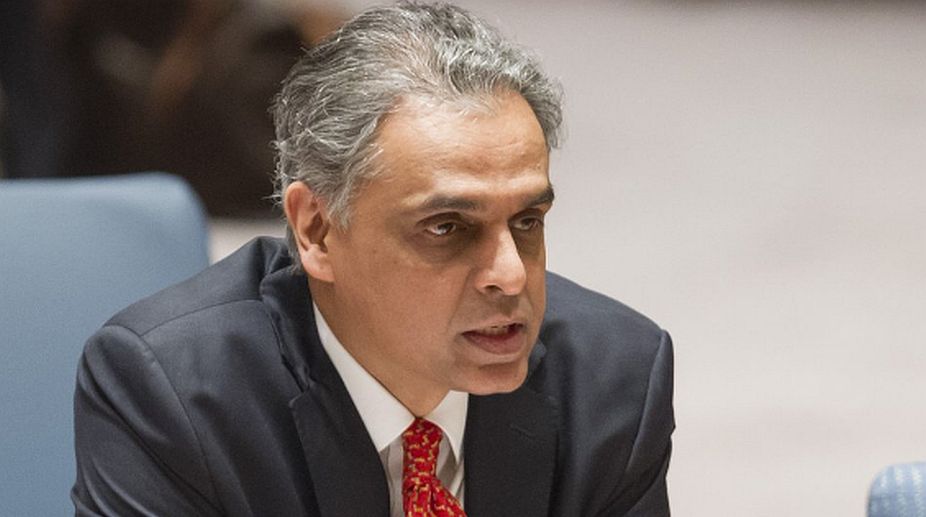Even as India and other aspirants for permanent seats on the UN Security Council offered to forego veto powers to get the reforms process moving, Pakistan joined hands with Italy to oppose their candidature at the two-day Inter-Governmental Negotiations (IGN) being undertaken by the General Assembly.
Speaking on behalf of the ‘G-4’ which comprises India, Germany, Japan and Brazil, India’s Permanent Representative to the UN Syed Akbaruddin on Tuesday said the issue of veto was important but it should not be allowed to have a veto over the process of Council reform itself.
He said the ‘G-4’ countries were of the view that while new permanent members would in principle have veto powers that the current five have, they would not exercise the veto until a decision on the matter had been taken during the review.
Akbaruddin said India and other ‘G-4’ countries believed that there was an imbalance of influence between permanent and non-permanent members in the Security Council and expanding it in the non-permanent category would not solve the problem. It would actually widen the differences between permanent and non-permanent members even more, tilting the scales in favour of a dispensation that was valid in a special situation in 1945 when the UN system came into being but no longer now.
‘’A balanced enlargement in both categories is necessarily the only way to ensure an equilibrium that reflects the current situation,’’ he added.
Speaking later during the day, the Pakistani envoy reaffirmed her country’s stand for an increase in the number of non-permanent members as the “best” method to make the 15-member body more representative and democratic.
“We believe that the best, and the only way, to accommodate legitimate regional and political aspirations, is to enlarge the Security Council in the non-permanent category,” Ambassador Maleeha Lodhi said.
The Security Council is currently composed of five permanent members ~ Britain, China, France, Russia and the United States ~ and 10 non-permanent members that are elected in groups of five to two-year terms.
Lodhi argued that any expansion of the unelected, or permanent, category of seats would not make the Security Council more democratic and representative.










